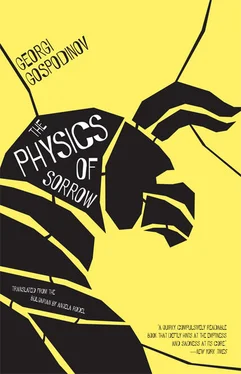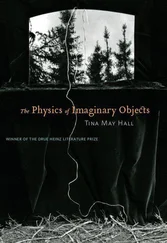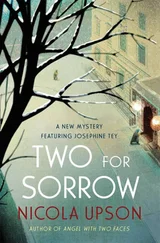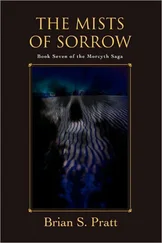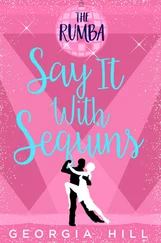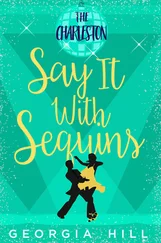Mehmet Ali Ağca shot the pope. Bulgaria was mixed up in it somehow and we all stood glued to our TV sets. Nothing brings a small nation together like the feeling that everyone is against it.
Bulgaria was not directly involved in the other important event. In December, we heard about AIDS for the first time. Which, in 1981, officially put an end to the ’60s. All sexual revolutions were called off for health reasons. Since they had never really started here in Bulgaria, we didn’t take their end as anything particularly tragic.
Brezhnev died the very next year. Did this have anything to do with the AIDS epidemic? I doubt it. It was a November day, cheerless and dreary, it was raining. They announced the news at school, the teachers looked more scared than sad. Yes, fear was stronger than grief. Who will protect us now? Classes were cancelled for the day. The next day, they brought the television set from the teachers’ lounge out into the corridor and made us line up at attention to watch the funeral, in all of its dismal detail: the massive coffin heaped with flowers, the slow marches that echoed throughout the whole school. They had cranked up the volume to the max. The youngest kids, who were right in front of the television, looked on in bewilderment — it was most likely the first time they had seen a dead person. And so we confronted death head-on, in a cold school corridor, forcing ourselves to sniffle a bit for a person who had meant nothing to us. I was twelve and had kissed a girl for the first time the day before, albeit it in the dark during a game of spin-the-bottle at a birthday party. First kiss, first death.
That marked the beginning of the end. Soviet general secretaries started dying off every year or two, like an epidemic. The ritual was already worked out. School would be called off for a day. The next day, we would watch the funeral in the school hallway and the class presidents would cry, while those of us in the back rows would peg each other with rice launched from pens-turned-blow-darts. After so much repetition, death no longer made such an impression on us.
In fact, the whole period I was in puberty can be briefly described through the prism of the complex political context of the ’80s.
First kiss (with a girl).
Brezhnev dies.
Second kiss (different girl).
Chernenko dies.
Third kiss.
Andropov dies.
Am I killing them?
First fumbling sex in the park.
Chernobyl.
A long half-life of exponential decay ensues.
YELLOW SUBMARINE
After numerous, careful listens to “Yellow Submarine,” recorded in 1968, you can discover an encoded call to revolution, a conspiratorial message from the Beatles to the youth of Bulgaria. In the middle of the song (precisely one minute and 35 seconds from the beginning) in the background noise you can clearly hear the phrase “pusni mi verigata” or “let go of my chain,” with the accent on the “u,” uttered very quickly in impeccable Bulgarian. Just like that: pusnimiverigata . Unfortunately, we decoded it far too late, in the mid ’80s, when all was already lost.
We all live in a. tum-tuh-dum-tuh-dumm. tum-tuh-dum-tuh-dumm. tum-tuh-dum-tuh-dumm
We all live in a. tum-tuh-dum-tuh-dumm. tum-tuh-dum-tuh-dumm. tum-tuh-dum-tuh-dumm
But no Yellow Submarine ever passed by the Yellow House.
FOUR SECONDS FROM THE ’90S
I saw myself in a three-minute video from November 3, 1989, the only surviving one as far as I know, despite all the cameras that were there. For four seconds, I was twenty years old. Four long seconds, which gave me time to remember everything. God, how skinny and ridiculous I was, with my bulging Adam’s apple, hair hanging in my eyes, my jacket, as cheap as only a student’s could be. And there’s Gaustine, too, the only shots of him, he never let himself be photographed. We’re constantly looking around, curiosity and fear. It was the first protest rally in Bulgaria in forty years. Seen from today, the protest was completely harmless in its demands: stop some hydro-project from polluting the Rila Mountains. But the Wall hadn’t fallen yet, nor had the regime in Bulgaria. I noticed the plainclothes people with cameras, who definitely weren’t from the news station. Secret service agents use a different filming technique, they zoom in on individual faces so that they can be identified. Thanks to that I can be seen up-close for a whole four seconds. The cameraman overdid it a bit. Here and there I catch sight of familiar faces, a few people from the university, a poet. Their faces are anxious, their bodies tense, ill-at-ease, our clothes are almost identical, badly cut, mass-produced. Yes, unlike the ’60s, which were truly sexy, colorful, they knew how to dress, the ’80s, like communism as a whole, came to an ugly end.
Look, now on the recording you can see the plainclothes agents bursting in, driving a wedge in the rally to cause chaos. We spot them, my friend and I exchange a few words, then I turn my head to the right, directly toward the camera that is filming me. That happens during the third second. I try to enlarge the frame, but the recording is too grainy. By the fourth second, I’m already gone.
So I don’t forget.
From a bookstore on Vitosha Boulevard, I stole the book What to Cook During a Crisis , so I could give it to the girl I was living with at the time. We didn’t have anything to eat in our apartment besides two cans of beans, food aid from the Swiss Army’s supplies, already past their expiration date. We would sit down in the evenings with the stolen cookbook.
What should we whip up for dessert?
Well, what do you say to pear cake?
We would open up to page 146, where the cake recipe was, and would start to read slowly, savoring the taste of every word. We would add half a cup of honey to the butter melted in a pan. We would carefully separate the egg yolks from the whites. We would then mix the yolks with half of the sugar, plus the oil, milk, flour, and baking powder. We would stir the ingredients very well with a wire hand mixer and pour them into the greased pan. We would put the pan in the oven and bake it until golden-brown. We didn’t have any of the abovementioned things, except the pan, the oven, and the wire hand mixer. But we got so into it that afterward, you could see traces of flour on our hands.
Auntie Fannie, 70, from the Youth 1 neighborhood, requested a stomach X-ray at the local polyclinic because of the free oatmeal they gave out before the exam.
The cold and the power outages during the ’90s. The dark foyer of the Globus movie theater, strangers’ blind breathing backs.
Meetings across dark Sofia, as I make the rounds as a freelance nighttime reporter for some newspaper. A bear-trainer without his bear, wandering through the city. Some newly minted Mafiosi had rolled up in an SUV, asked him how much the bear cost, he had stood his ground, telling them it wasn’t for sale, they whacked him over the neck, grabbed the bear’s chain and tied it to the back of the SUV. They needed it, they said, to train their pit-bulls. They tossed fifty leva at him, and the bear went running off after the SUV, roaring. These little things don’t even make it into the black chronicles of the ’90s.
The story of Blind Tony, who is trying to find himself a wife on the bus to Students’ Town with a single, endless recitative:
Yes, Tony am I, I’m a one-in-a-million guy,
I’m looking for a wife, with whom to share my life.
This is followed by an epic, adventure-filled tale about who he is and where he is going, how he has struggled to make a life for himself in the big city, a story about the future young family he’ll found, plans for children and a peaceful old age. At the end, in the same rhythm and in rhyme, Blind Tony gives his exact address and telephone number.
Читать дальше
